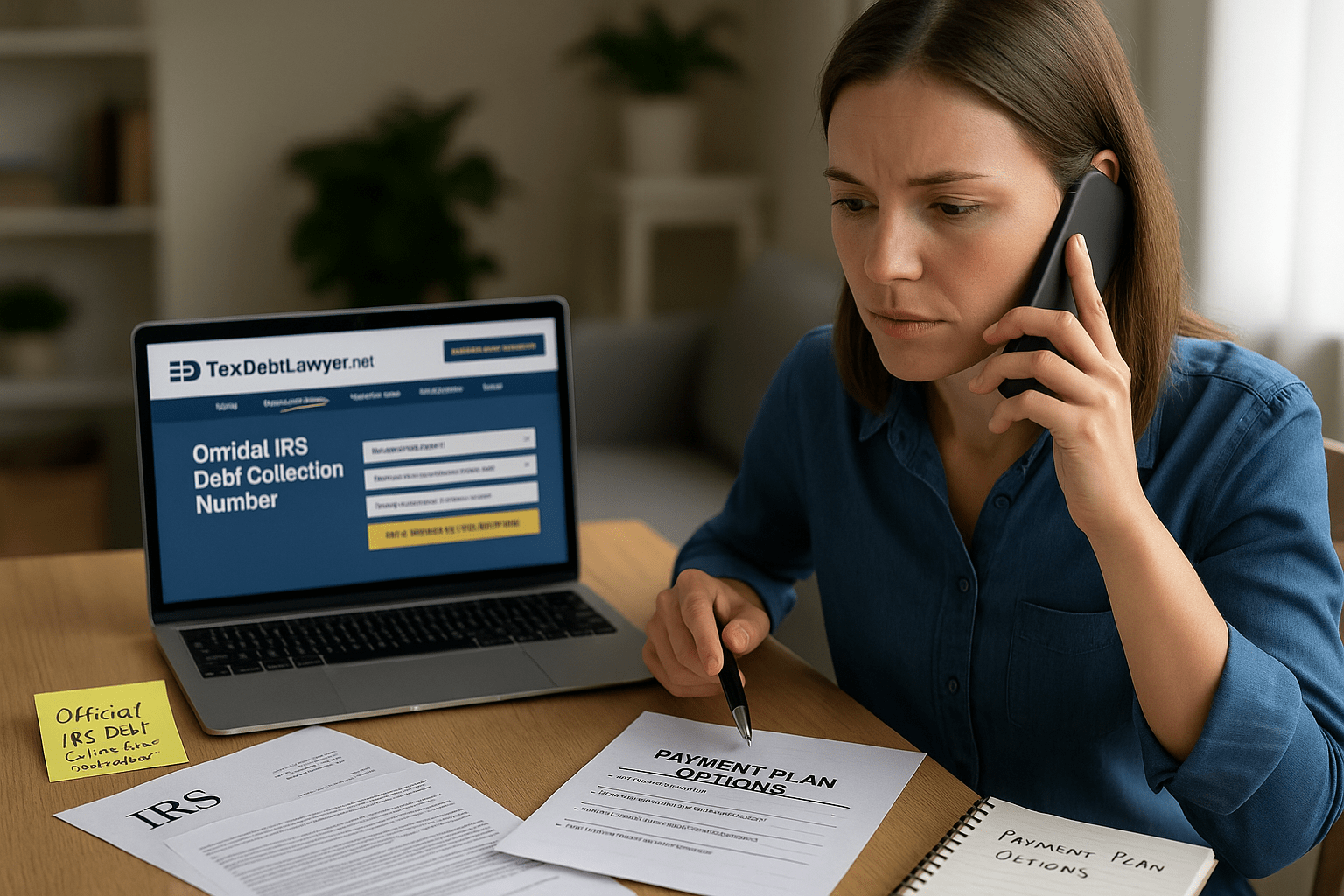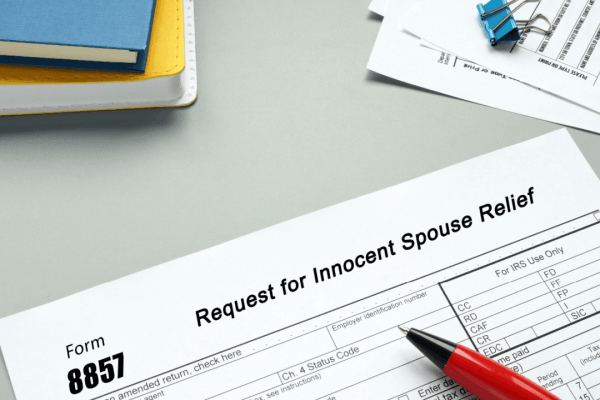
IRS Debt Collection Number: What You Need to Know
IRS Debt Collection Number for Taxpayers in Debt
IRS debt collection number inquiries are common among taxpayers facing overdue balances. If you’ve received an IRS notice or are worried about potential collection actions, knowing the correct number to call can save you time, money, and stress. But it’s equally important to avoid scams and understand what happens when you reach out.
What Is the IRS Debt Collection Number?
The IRS does not always assign a single number for collections. Depending on the letter or notice you receive, there may be a direct number listed on that document. However, the primary toll-free number for individual taxpayers is:
IRS Collections Number: 1-800-829-1040
This connects you to the IRS general assistance line, where agents can help you review your tax debt, set up payment plans, and answer questions about your account status.
Tip: For details on IRS notices like CP501 or CP504, visit IRS.gov/CP504 to review what each means and how to respond.
Hours of Operation
IRS phone lines typically operate Monday through Friday, 7:00 a.m. to 7:00 p.m. local time.
Which Notices Require Action?
Not all IRS letters require a phone call, but the following notices should be taken seriously:
- CP501 – Reminder that you owe taxes.
- CP503 – Second reminder.
- CP504 – Final notice before levy action may begin.
If you’ve received a CP504, it’s time to take action or risk enforced collections. You can also explore IRS debt resolution options that may prevent garnishments or levies.
What to Expect When You Call
The IRS debt collection number is your first step toward resolving your tax situation, but it’s not a quick call.
Verifying Your Identity
Before discussing your account, the IRS will ask for your:
- Social Security Number or ITIN
- Filing status (e.g., single, married)
- Most recent tax return details
- IRS notice or letter reference number (if applicable)
Common Reasons for Calling
- Confirming how much you owe
- Setting up a payment plan
- Asking for a short-term extension
- Disputing a collection notice
Taxpayers who owe less than $50,000 may be able to set up an installment agreement over the phone, according to IRS procedures. If you’re unsure how, a licensed tax expert can walk you through the process or handle it on your behalf.
Watch Out for IRS Collection Scams
Not every call about taxes is legitimate. Scammers often impersonate IRS agents to pressure taxpayers into making immediate payments.
How to Spot a Scam
- Demands for immediate payment over the phone
- Requests for gift cards or wire transfers
- Threats of arrest or deportation
- Calls that don’t allow time to appeal
What the IRS Will Never Do
The IRS will never:
- Ask for personal financial information via email or text
- Call without first sending written notices
- Demand payment without allowing an appeal
Report Fraudulent Calls
You can report scam calls to the Treasury Inspector General for Tax Administration (TIGTA) at tigta.gov or by calling 1-800-366-4484.
Alternative Ways to Resolve IRS Debt
If you can’t get through on the phone—or want more control—consider these options:
Use the IRS Online Portal
- IRS.gov/payments allows you to check balances, make payments, and set up installment agreements without calling.
Work With a Tax Relief Professional
A licensed tax attorney or enrolled agent can contact the IRS on your behalf, review your financials, and negotiate payment options or debt relief.
Explore IRS Forgiveness Programs
If you truly cannot pay, programs like Offer in Compromise or Currently Not Collectible (CNC) status may reduce or pause your tax obligations.
Call the Right IRS Debt Collection Number to Protect Yourself
Calling the official IRS debt collection number is the safest way to address tax problems. Whether you’re looking to dispute a balance or set up a payment plan, don’t wait for the IRS to escalate to wage garnishment or liens. Be proactive—and verify you’re speaking to the real IRS before disclosing personal details.
Talk to a Tax Professional Before You Call the IRS
If you’re overwhelmed or unsure of what to say, contact us today. Our trusted tax resolution professionals can help you understand your options, handle IRS calls on your behalf, and represent you in IRS matters.
Frequently Asked Questions
1. What is the actual IRS debt collection number?
The general IRS collections number is 1-800-829-1040, but you should also refer to any IRS notice you’ve received for a specific callback number.
2. Is it safe to talk to someone claiming to be from the IRS?
Only if you initiated the call or verified the number from the IRS website or letter. Never give information to unknown callers.
3. Can I call the IRS to stop a levy or garnishment?
Yes, but time is critical. Once a levy is initiated, it’s harder to reverse. The sooner you call, the better your chances of stopping it.
4. What if I missed the IRS call or didn’t answer?
The IRS usually sends a letter before calling. Return the call using the official number on the notice, not the number from a voicemail.
5. Can I handle my tax debt without calling the IRS?
Yes, through the IRS website or a licensed tax professional, but complex cases may still require phone communication.
Key Takeaways
- Use the IRS debt collection number (1-800-829-1040) to resolve unpaid taxes safely.
- Always verify IRS contacts and avoid scams.
- Be prepared with documentation before calling.
- Online tools and tax professionals are valuable alternatives.
- Taking action early can prevent serious collection efforts.
Free Tax Case Review
If you are struggling with tax debt or have received a letter from the IRS complete the form below.Advertising. This site is a marketing service and does not provide legal or tax advice. Submitting information does not create an attorney-client, tax professional-client, or any other advisory relationship. Results are not guaranteed. A list of participating attorneys, tax firms, and tax providers is available here.
IRS Audit
You received an audit notice from the IRS
Tax Debt Relief
You owe the IRS money and are looking for relief options
Wage Garnishment
The IRS is taking part of your wages to pay off your debt
Tax Lien
The IRS put a legal claim on your property
IRS Property Seizure
The IRS is going to take your property to pay down or pay off your tax debt
Penalty Abatement
You want to request to remove or reduce penalties assessed by IRS
Innocent Spouse Relief
Relief from joint tax debt caused by your spouse or former spouse
Tax Debt FAQ
Common facts, questions and answers about tax debt and tax debt reilef
Tax Debt Lawyer
A tax debt lawyer can help you with your tax debt problems
Recent Posts
- Who Is Eligible for Innocent Spouse Relief and How Does It Work?
- What is an Effective Tax Strategy for Married Couples
- What are the Proofs of Innocent Spouse Relief?
- What Form Do You Use for an Innocent Spouse? | Complete IRS Filing Guide
- What Are the Four Types of Innocent Spouse Relief? | Your Complete Guide



